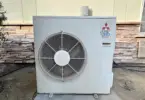When it comes to selecting a new water heater, understanding the energy efficiency, cost-effectiveness, and environmental impact is crucial. Among the various options available, tankless water heaters and hybrids stand out for their enhanced energy efficiency. Let’s delve into the differences. tankless water heaters vs hybrids, and evaluate the potential savings they offer.
Distinguishing Features: Tankless Water Heatersmvs. Hybrids
To fully grasp the distinctions and benefits of instantaneous and hybrid water heaters, it’s essential to differentiate them from traditional storage water heaters. Conventional water heaters, whether gas or electric, typically come with storage tanks ranging from 20 to 50 gallons. While cost-effective to purchase and install, they incur higher energy costs. Tankless and hybrid water heaters emerge as superior choices in terms of efficiency, operational costs, and environmental considerations.
Understanding Tankless Water Heaters
Instantaneous water heaters, also known as “on-demand” water heaters, operate on natural gas or electricity. Unlike traditional heaters, they don’t store hot water in a tank; instead, water is heated only when needed. This design contributes to energy efficiency and water conservation. Additionally, these water heaters boast compact sizes, making them ideal for smaller homes where space is a consideration. They typically heat 2 to 5 gallons of water per minute, aligning with the average homeowner’s daily water usage of 84 gallons.
Exploring Hybrid Water Heaters
In stark contrast, hybrid water heaters operate using electricity and do not rely on natural gas or propane. These units feature a storage tank similar to traditional water heaters but employ a unique heating mechanism. Instead of generating heat, hybrid water heaters transfer heat from the surrounding air to a converter, utilizing a heat pump to heat the water. Due to their reliance on ambient air, these water heaters are best suited for installation in well-ventilated areas within a home’s air conditioning space.
Now that we’ve established an understanding of both types of water heaters, let’s compare instantaneous and hybrid water heaters based on performance, energy efficiency, operating costs, and installation expenses.
Performance and Energy Efficiency
Both instantaneous and hybrid water heaters outperform traditional storage water heaters in terms of energy efficiency. Instantaneous heaters heat water only when needed, eliminating the need for constant tank temperature maintenance. On the other hand, hybrids extract heat from the air, employing a pump to heat the water without generating additional heat. While both models are energy-efficient, their operating costs differ based on the energy source.
Operating Costs
The operating costs of instantaneous and hybrid water heaters are influenced by the energy source available. For electric-only setups, hybrids offer lower operating costs due to their heat transfer mechanism. In contrast, households with access to natural gas may find instantaneous water heaters more cost-effective, as natural gas is generally more economical than electricity. Overall, the operating costs for both types of water heaters are comparable, with an average annual cost of around $1 for a hybrid water heater.
Installation Fees
Installation costs for both types of water heaters vary depending on the specifics of the setup. Hybrid water heaters align with traditional units, requiring adequate ventilation in a designated space. This could entail additional installation expenses if the home lacks suitable conditions. Instantaneous water heaters, while generally simpler to install, also incur basic installation costs. On average, tankless water heaters cost around $1,600, while hybrids cost approximately $1,660.
Conclusion
In conclusion, both instantaneous and hybrid water heaters offer remarkable energy efficiency, cost-effectiveness, and eco-friendliness. The choice between the two depends on factors such as available energy sources, space considerations, and water usage preferences. Hybrids may be preferable for electric-only setups and spacious areas, while tankless water heaters are ideal for gas fuel, space limitations, and water-saving goals.
If uncertainty persists regarding the most suitable water heater for your home, we provide comprehensive information to guide your decision-making process. Remember, the costs associated with large families and hot water usage patterns can influence the decision-making process. Additionally, the hybrid water heater, unlike its tankless counterpart, ensures a reservoir always filled with water, guaranteeing an uninterrupted supply of hot water.
FAQs
1. Is investing in a hybrid water heater worthwhile?
Yes, investing in a hybrid water heater is highly worthwhile. These water heaters offer exceptional energy efficiency, resulting in savings of up to $470 per year on water heating costs compared to standard electric water heaters.
2. What are the disadvantages of a tankless water heater?
The primary disadvantage of tankless water heaters is their significantly higher purchase and installation costs compared to tank-style heaters. On average, tankless water heaters cost three times as much as tank-style water heaters.
3. Is a hybrid water heater superior to a tankless water heater?
The choice between a hybrid and tankless water heater depends on factors such as available space, energy sources, and water usage preferences. In warmer climates, hybrid units may be advantageous, drawing heat from the air with minimal energy consumption. Both systems surpass traditional water heaters in terms of energy savings and longevity.
Disclosure: We may get commissions for purchases made through links in this post.








